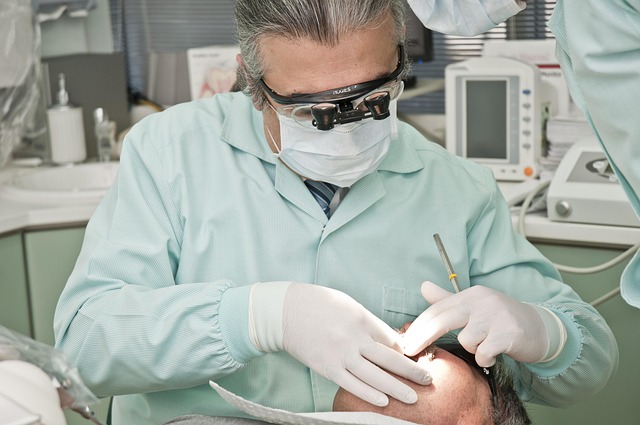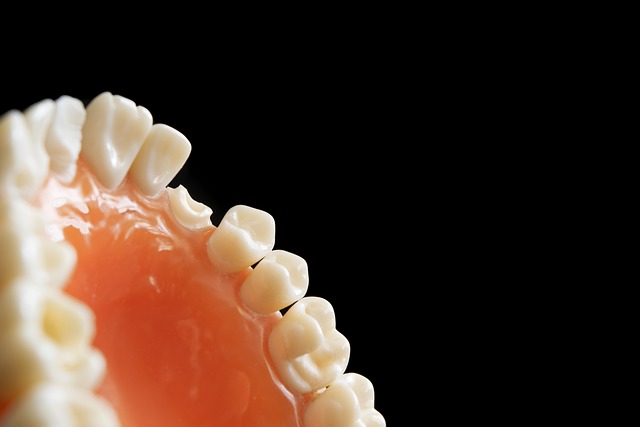Liability insurance for dentists is crucial protection against risks like negligence, accidents, and malpractice claims. Policies cover professional services, medical errors, property damage, and patient injuries, offering financial security and peace of mind. Choosing a specialized insurer with comprehensive coverage ensures dental practices can focus on quality care while mitigating long-term risks.
Protecting your dental practice is more than just providing quality care; it’s ensuring you’re shielded from unexpected risks. In this comprehensive guide, we explore the crucial role of liability insurance for dentists in safeguarding your business and reputation. From understanding the nuances of dental liability coverage to navigating claims management, this article equips you with essential insights. Learn why comprehensive protection is vital and discover key components, selection tips, and common risks to mitigate potential liabilities effectively.
- Understanding Liability Insurance for Dentists
- Why Dental Practices Need Comprehensive Coverage
- Key Components of a Good Dental Insurance Policy
- How to Choose the Right Liability Insurer
- Common Risks Faced by Dental Professionals
- Claims Management and Its Impact on Your Practice
Understanding Liability Insurance for Dentists

Liability insurance for dentists is a crucial component in safeguarding your dental practice against potential risks and financial losses. This type of insurance protects against claims of negligence, accidents, or injuries that may occur during dental procedures. It covers medical expenses, legal fees, and settlements if a patient files a lawsuit against the dentist or the practice.
When considering liability insurance for dentists, understanding the policy’s scope is essential. Policies typically include coverage for professional services, malpractice, and general liability. Professional services cover the specific treatments provided, while malpractice insurance protects against errors or omissions during dental care. General liability insurance, on the other hand, addresses claims related to property damage or personal injury on your practice premises.
Why Dental Practices Need Comprehensive Coverage

Dental practices, much like any other business, face a unique set of risks and challenges that require comprehensive protection. While many think of dental work as routine procedures, there are potential hazards involved, including accidents, malpractice claims, and property damage. Comprehensive liability insurance for dentists is not just a suggestion but a necessity to safeguard against these unforeseen circumstances.
This type of coverage offers financial security by protecting the practice from significant legal costs and damages in the event of a lawsuit or accident. It ensures that dentists can maintain their professional reputation and keep their practices running smoothly, even amidst unexpected events. With liability insurance, dental professionals can focus on providing quality care without the constant worry associated with potential risks.
Key Components of a Good Dental Insurance Policy

A comprehensive dental insurance policy is an indispensable tool for any dentist looking to safeguard their practice and protect themselves financially. When selecting a policy, look for key components that offer both liability coverage and benefits for your patients. Liability insurance for dentists is crucial, as it shields against potential claims and lawsuits arising from medical errors or accidents. This protection is essential, as dental practices can face significant financial burdens due to legal settlements and court costs.
Additionally, a good policy should include broad patient coverage, ensuring that your dental services are affordable and accessible. Features like preventive care benefits, regular check-ups, and emergency treatments not only attract patients but also foster a healthy oral care routine. By offering these services, you can enhance patient satisfaction and loyalty while simultaneously mitigating the risk of costly procedures in the future.
How to Choose the Right Liability Insurer

When selecting a liability insurer for your dental practice, it’s crucial to consider several factors. First, evaluate the provider’s expertise in insuring healthcare professionals. Look for insurers specializing in medical malpractice and dental liability insurance, as they will have a deeper understanding of the unique risks associated with dental care.
Additionally, examine their coverage options and limits. Ensure that the policy covers general liability, professional liability, and any other relevant types specific to your practice. Compare quotes from multiple insurers, scrutinizing the fine print to avoid surprises later. Opt for a company with a solid reputation, consistent customer reviews, and transparent communication throughout the process.
Common Risks Faced by Dental Professionals

Dental professionals face a unique set of risks and challenges that require specific coverage to protect their practices. One of the primary concerns is liability insurance for dentists, which shields them from potential legal issues arising from medical malpractice claims. These claims can result from errors in diagnosis, treatment mistakes, or even accidents during dental procedures. The cost of defending against such lawsuits can be substantial, not to mention the potential damage to reputation and practice stability.
Additionally, dental practices must consider risks related to property damage, employee mishaps, and patient safety. Accidental injuries on the premises, equipment malfunctions, or mismanaged patient records can lead to costly settlements. Adequate insurance coverage ensures that these risks are mitigated, providing financial security and peace of mind for dental professionals so they can focus on delivering quality care to their patients.
Claims Management and Its Impact on Your Practice

Claims management is a critical aspect of running a dental practice, and it’s one area where the right liability insurance for dentists can make a significant difference. When a patient files a claim against your business due to an adverse event or injury during treatment, effective claims management ensures that these issues are handled promptly and professionally. This process involves assessing the validity of the claim, negotiating settlements, or defending against accusations in court.
A well-managed claims process can protect your dental practice’s reputation, preserve patient trust, and minimize financial losses. It allows you to focus on delivering quality care while knowing that potential risks are mitigated by comprehensive liability insurance for dentists. This support is essential for maintaining a successful and sustainable dental business over time.
